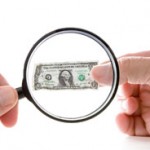It is estimated that academic medical centers receive nearly $5 billion in donations yearly, with about 80% derived from foundations, and the remainder donated by grateful patients.11 Why are people so generous? No doubt, there are many reasons, such as an altruistic need to share their good fortune by giving back to society, a desire to leave tangible evidence of their good deeds decades after their own demise or a personal connection to a particular illness. A donor’s largesse can be jaw dropping.
In 2015 alone, there were seven gifts, each in excess of $100 million, given to academic centers, including donations to strengthen programs in pediatrics at the University of California in San Francisco (UCSF) and in San Diego, to enhance cancer research at the Oregon Health Sciences University in Portland, the neurosciences in Seattle, genomics in South Dakota, to promote pharmaceutical research at the University of North Carolina in Chapel Hill and to advance biological research in mental health with a $650 million donation made to the Broad Institute in Cambridge, Mass.12 And 2017, is already off to a wonderful start with UCSF recently announcing its largest gift ever, $500 million from the Helen Diller Foundation.
A new class of donor has emerged, the Silicon Valley gigaphilanthropists. Some of these youthful billionaires have pledged to follow the lead of their elder peers, Bill Gates and Warren Buffet, who have created the Giving Pledge, promising to donate the bulk of their wealth to philanthropy before they die.
The numbers are astounding: consider that Mark Zuckerberg, the founder of Facebook, and his spouse, Priscilla Chan, MD, have pledged $3 billion dollars over the next decade to fund their audacious plan to cure, prevent or manage all disease in the next few decades by mapping every cell in the human body. The couple established the Chan Zuckerberg Biohub, a partnership among Stanford, USCF and the University of California at Berkeley. Interestingly from a tax viewpoint, the foundation is not considered a charity, but a limited liability partnership, which may allow for more innovative partnerships, but apparently denies the couple any charitable tax write-off.13
Elsewhere, Mr. Zuckerberg’s business partner, Sean Parker, is funneling $250 million into the first cancer trials using CRISPR technology, in what he has dubbed “the Manhattan Project for curing cancer with the immune system.”14 These are individuals who dream big, achieving astonishing success at young age; they are not afraid of disrupting the old ways of doing business.

